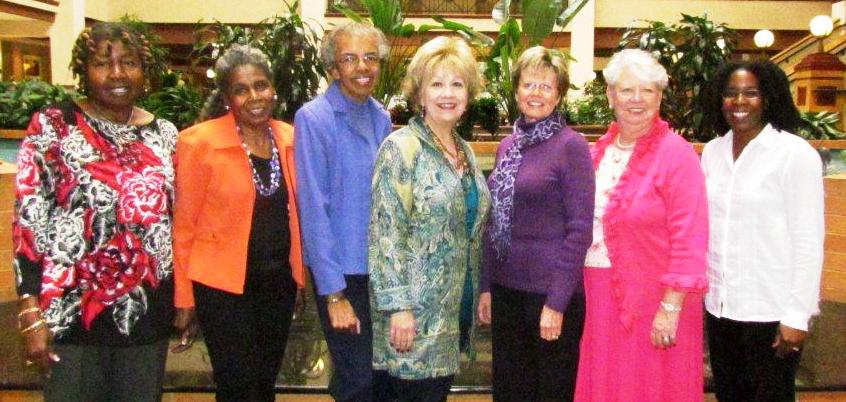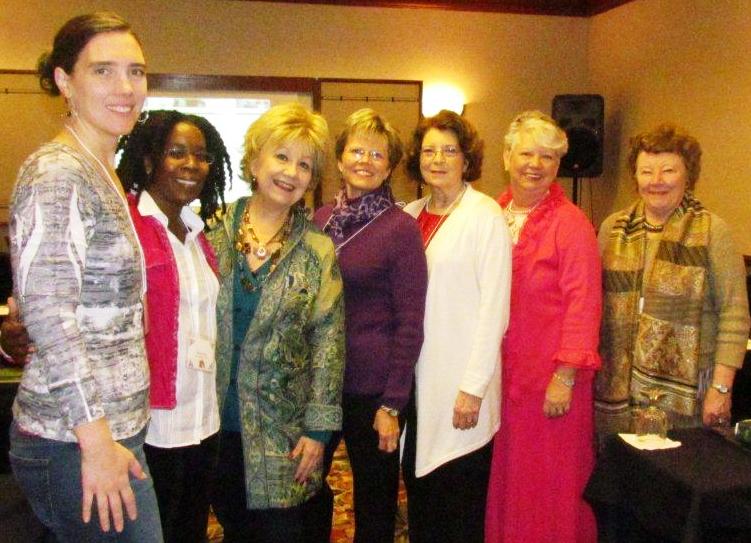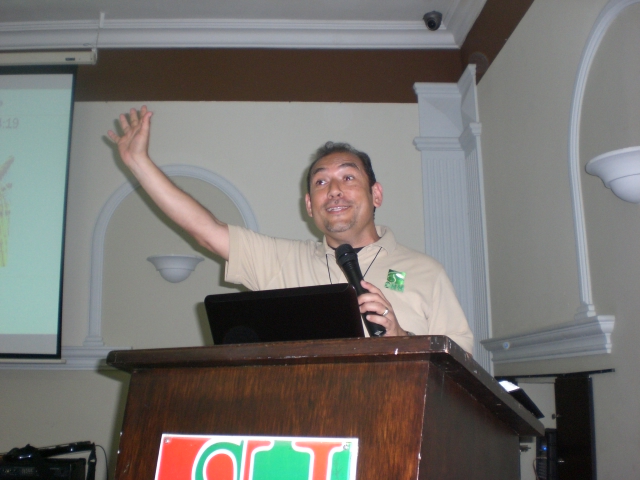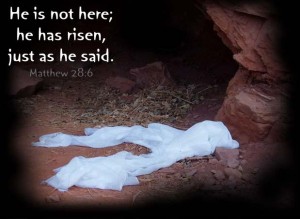
Mel Dahlgren, who serves as the senior pastor of GCI’s congregation in San Jose, California, spent the first twelve years of his life as a Seventh-day Adventist in New England. Mel continues the story:
My parents began listening to Herbert Armstrong from a small radio station out of Wheeling, West Virginia Convinced of his message they sold our home in Massachusetts, packed everything we could into our ’49 Plymouth station wagon and drove across country to Pasadena, California, where the headquarters of the church was located. Arriving on the Day of Atonement, I wanted to fast but didn’t quite make it. I fainted in church and yelled out just before passing out. The ushers came and carried me to the water fountain for a refreshing glass of water. The next day we headed east – for the Feast of Tabernacles in Big Sandy, Texas.
We returned to Pasadena where my dad got a job as a tool-and-die maker. My parents were baptized in the pool in the lower gardens of the Ambassador campus. They gave me the option of attending a Seventh-day Adventist church. I wanted to do my own research so I took the 58 lessons of the Ambassador College Bible Correspondence Course and found myself embracing this new way of life. I attended Imperial School from grade seven to twelve.
In 1965 I was accepted to Ambassador College in Big Sandy, Texas. I met my future wife, Barbara, my freshman year while we both worked on the custodial crew. Barbara was transferred to Imperial Schools as a student teacher her sophomore year, but I remained on the custodial crew until my senior year, when I was moved to the mail reading department.
Forging a romantic relationship at college was challenging since the rules dictated you could not date the same girl more than once a semester until your senior year. I had set my eyes on Barbara, so at the end of my junior year I invited myself to her home in St. Louis to “check out her family.” They received my stamp of approval, but they were not all that impressed with me.
That did not deter my quest, so I proceeded to counsel with our dean of students about “us.” When I told Barbara my plans she said, “You can counsel if you want but just so you know – there is a ‘you’ and a ‘me’ but no ‘us.’” Undeterred by minor details, I pursued our relationship and by the grace of God, Barbara agreed to marry me. So began our 44 year adventure in the ministry.
My desire had always been to become a minister, but in college I was informed that I wasn’t ministry material. I blushed when I spoke and my voice was too raspy. Imagine my surprise when they announced that I was to be sent out into the field ministry.
Barbara and I graduated on one day, got married the next and headed to our assignment in Jacksonville, Florida. We served there for three years, followed by a year in Charleston and Parkersburg, West Virginia. Then we spent nine years in the London, Somerset, and Middlesboro, Kentucky areas. Next, we went to Tacoma and Olympia, Washington for six years and then to Detroit and Ann Arbor, Michigan for four years before ending up in California where we have been ever since. For the past 20 years we have worked with the Aptos, Salinas, Watsonville, San Francisco, San Leandro and San Jose churches. Currently we pastor the San Jose congregation where we live.
What I enjoy most about being a pastor is participating in the amazing transformation that Jesus performs in the lives of those he is calling. It is such a privilege to extend to others the incredible grace of Jesus Christ that he has so freely extended to me.
I haven’t really had a mentor in ministry, but I am deeply grateful to Michael Feazell for teaching me the true meaning of grace by his personal example in how he worked with me when I was recoiling after hearing about the changes in our church. I remember saying after our phone conversation, “Now that’s grace.” And from that point on, change became a joy rather than, “Oh, boy, here we go again.”
Being part of GCI to me is refreshing. Like Jesus, we are not afraid to tell it like it is and make whatever changes are necessary to be aligned with truth. I don’t see the favoritism and politicking in our denomination that used to be prevalent. I thank God for delivering us from all that and bringing us into the glorious light of the true gospel of grace and truth in Jesus Christ.
My passions in ministry (which means serving) are first to my family, second to the members and then to anyone I meet. Barbara and I have three beautiful children (Shelly, Sherisa and Matthew) and two wonderful grandchildren (Sophia, 5; and Dakota, 18). Since family is one of our highest priorities, we spend as much time together as possible.
Regarding my personal life, it’s pretty much an open book entitled Zorro and Me, which Barbara wrote a few years ago. I wish I could say it was a book of fiction, but all those humorous stories are true. After devoting much of her life to supporting me in ministry, it was wonderful to see Barbara blossom as a talented and entertaining writer. She is a major blessing to me, our family, our church and everyone she meets.
In conclusion, what I am learning in our wonderful church family is how our relationship with God is an ongoing way of life. It gives new meaning to praying without ceasing, because we can feel close to God all the time as we acknowledge him in all our ways. When we forget, he has not forgotten us and we can simply run to him and know we are always accepted because of who we are as his precious children.













